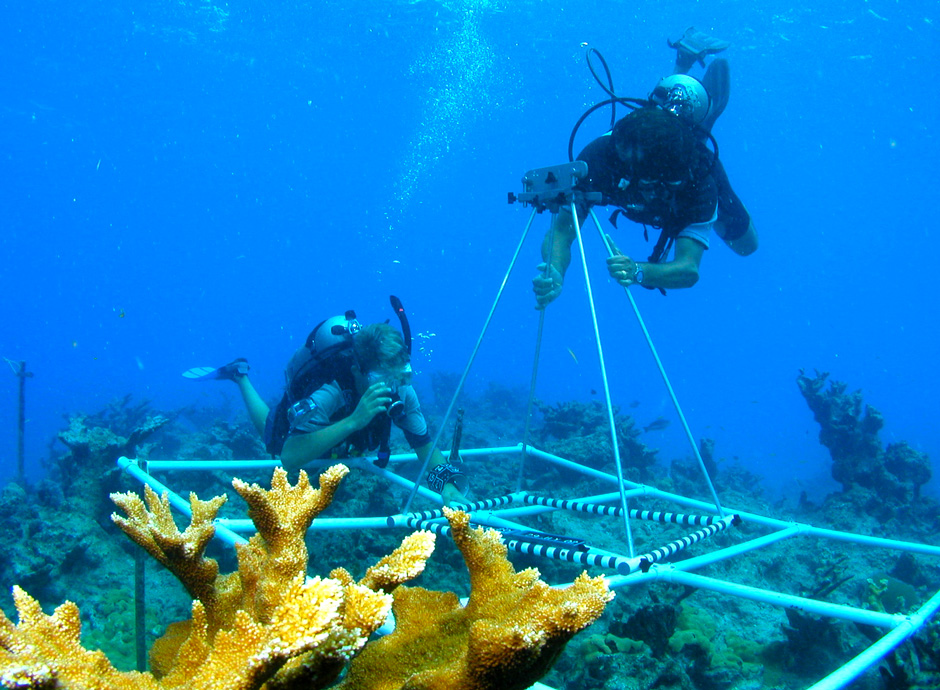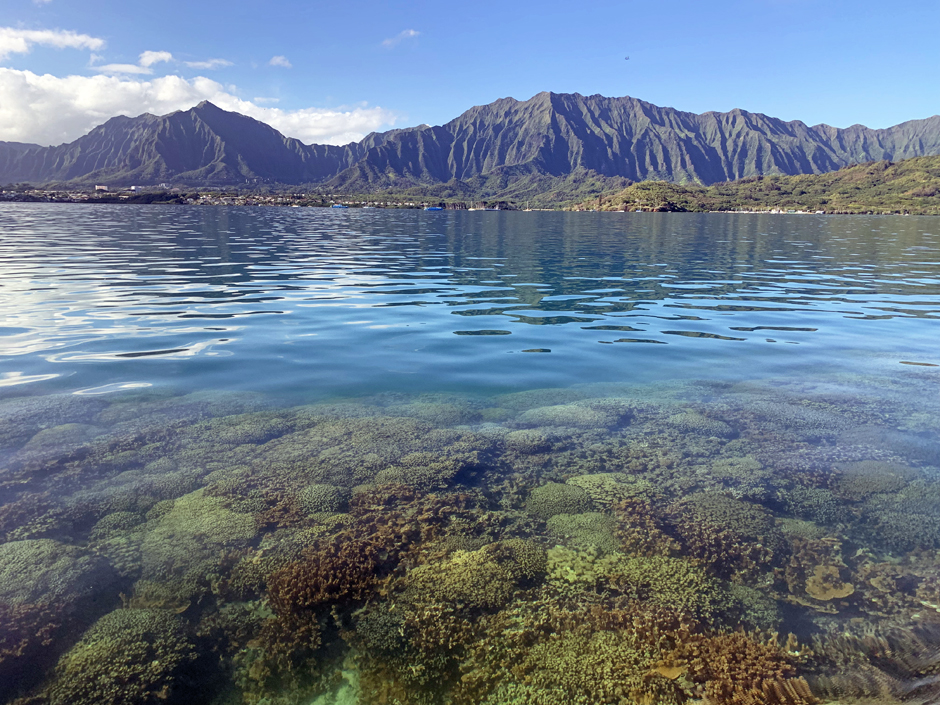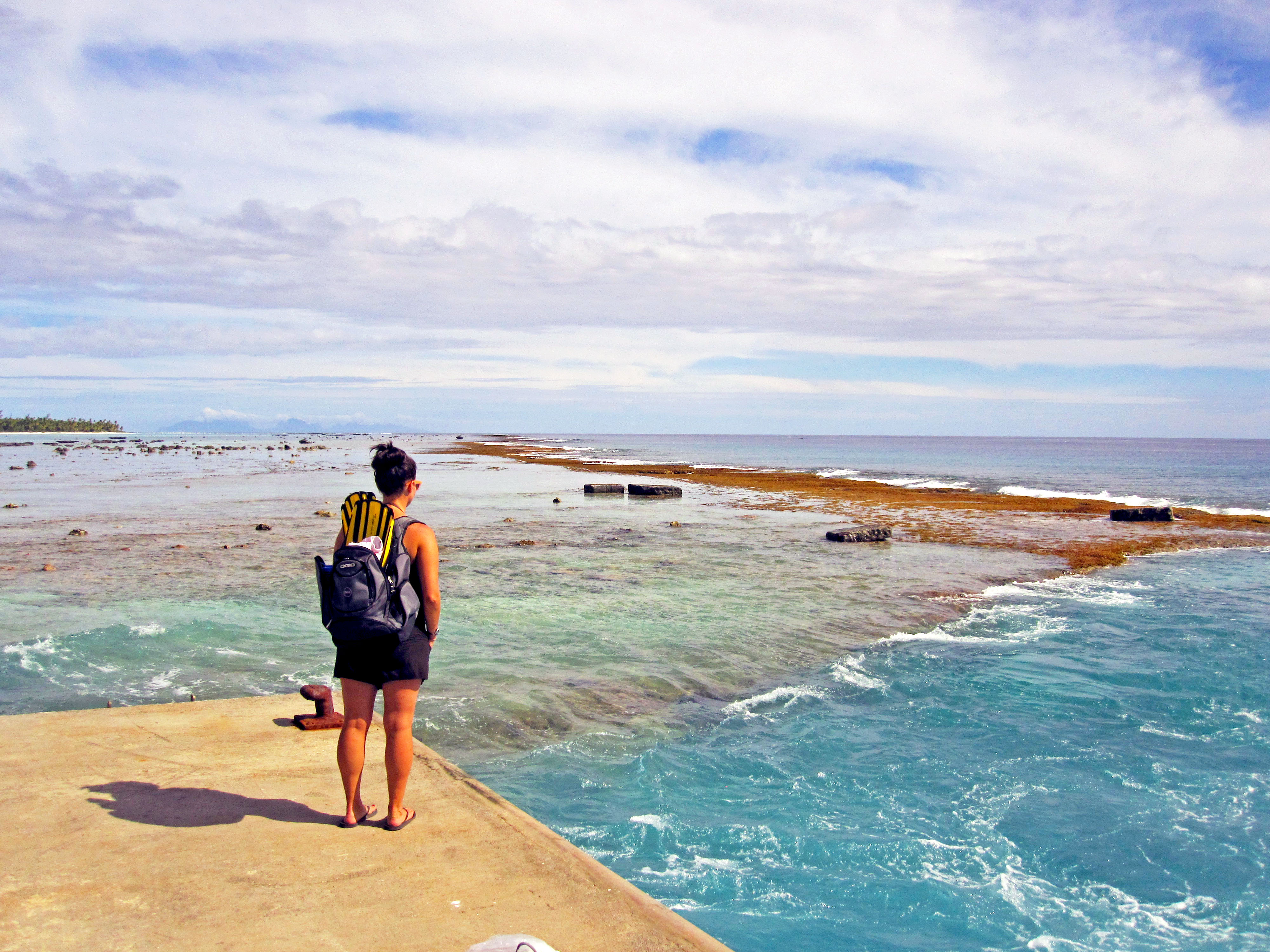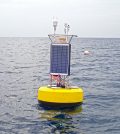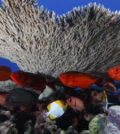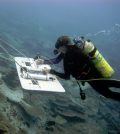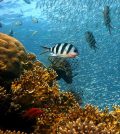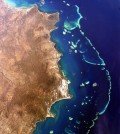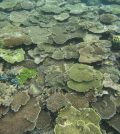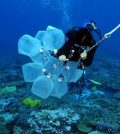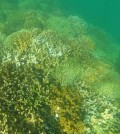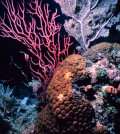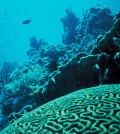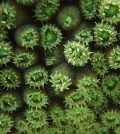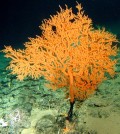Posts for tag "coral"
Duality of Science: The Importance of Science Communication for Promoting Change
Renowned marine ecologist James W. Porter explains why he sees science communication as a critical component of his long career.
- Posted January 29, 2024
The Tiniest Cars: Understanding the Effects of Microplastics on Coral
A first of its kind study is unfolding on the effects of ubiquitous microplastics on coral in Hawaii.
- Posted December 20, 2021
The East Bank Die-Off: A Coral Reef Whodunnit
A team of researchers turns to interdisciplinary collaboration to solve a mystery and explain a coral reef die-off.
- Posted February 20, 2019
Coral Reef Early Warning System Buoy
The CREWS Buoy System got a new upgrade this summer, with a smaller footprint and newer technologies, to aid in its goals.
- Posted November 28, 2018
Coral Skeletal Density Threatened by Ocean Acidification
Researchers reveal a model showing how ocean acidification affects corals’ ability to thicken, leaving them vulnerable and more breakable.
- Posted February 27, 2018
Few Coral Reef Ecosystems Likely To Escape Rising Seas, Temperatures
A study led in part by researchers at Duke University maps potential losses to coral reef ecosystems with predicted sea level and temperature rises.
- Posted November 14, 2016
Pacific Coral Larvae Transplants Likely To Fail
Research from scientists at Penn State University finds that coral larvae would likely not survive a trip across the Pacific Ocean.
- Posted August 25, 2016
Coral Reef Ecosystem Program Divers Use DIY Tech
Some creative thinking and DIY tech helps divers with the Coral Reef Ecosystem Program gather data in the Pacific Ocean without breaking the bank.
- Posted August 10, 2016
Coral Reefs Could Be Rescued By 3D Printers
3D printers’ latest task could save endangered coral reefs worldwide, according to a recent Popular Science article. Due to rising water temperatures, coral reefs are facing extensive and widespread bleaching globally. Coral bleaching occurs when coral reefs...
- Posted July 1, 2016
Lake Michigan Coral Reef Intrigues Shedd Researchers
Not long ago, we covered the discovery of a massive coral reef system in the Amazon River. The find was a surprise for many simply because it was hard to confirm with all the whipped-up sediments that...
- Posted June 14, 2016
Severe Bleaching Takes Toll On Great Barrier Reef
Large-scale bleaching has claimed a majority of the Great Barrier Reef, according to a New York Times article. Australian scientists say the bleaching has occurred over three months and is the most severe incident in nearly two...
- Posted June 9, 2016
Underwater Video Shows Coral Researchers In Action Near Philippines
We cover a lot of coral reef science on this website, but very rarely do we get a firsthand look at some of the underwater research in action. Thanks to a few scientists from the University of...
- Posted June 8, 2016
Coral Mass Spawning Correlates To Temperature Rise
While coral mass spawning is a well known phenomenon, the reason behind the huge spawning events was not clear until recently. Researchers at the University of Copenhagen discovered that the trigger of the dramatic events is an...
- Posted June 2, 2016
Corals And Algae: Overfishing Ups Competition
Overfishing around the world is causing more competition between corals and algae, upsetting ecosystems and fueling microbial growth.
- Posted June 1, 2016
Coral Bleaching Response Index Helps Conservationists, Scientists
The world is experiencing one of the longest global coral bleaching events ever recorded, according to a release from Northwestern University. That is making it a bit difficult for experts to keep up with all the changes...
- Posted May 25, 2016
Coral Index Sheds Light On Climate Change Vulnerability
While corals are experiencing unprecedented bleaching and die-off due to climate change, pinpointing which corals are most susceptible to stress and death due to increased temperatures has been difficult, until now. Researchers at Northwestern University have recently...
- Posted May 4, 2016
Massive Coral Reef Found In Amazon River
An international team of researchers, including scientists from the University of Georgia, have discovered a massive coral reef at the mouth of the Amazon River. The surprise discovery is believed to have been put off for some...
- Posted May 3, 2016
Multiple Stressors Spell Trouble For Coral As Climate Changes
In a study that was the first of its kind, researchers at the University of Miami Rosenstiel School of Marine & Atmospheric Science pre-conditioned corals to higher levels of CO2 and then raised the temperature of their...
- Posted April 25, 2016
Custom Microelectrode Sensor Uncovers Key Coral Calcification Data
A study led by U. of Delaware scientists uses a new, custom-built microelectrode sensor to measure the pH of calcifying fluids inside corals.
- Posted April 21, 2016
Coral Trait Database To Help Researchers Save Corals
Scientists need access to a great deal of data to make decisions, and they need it in a timely manner. This is especially true for researchers who study sensitive species like coral. Coral reefs are in crisis...
- Posted April 21, 2016


